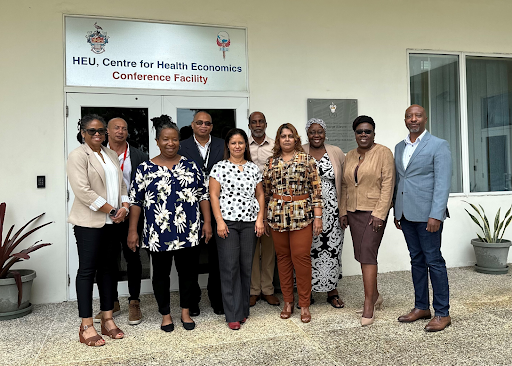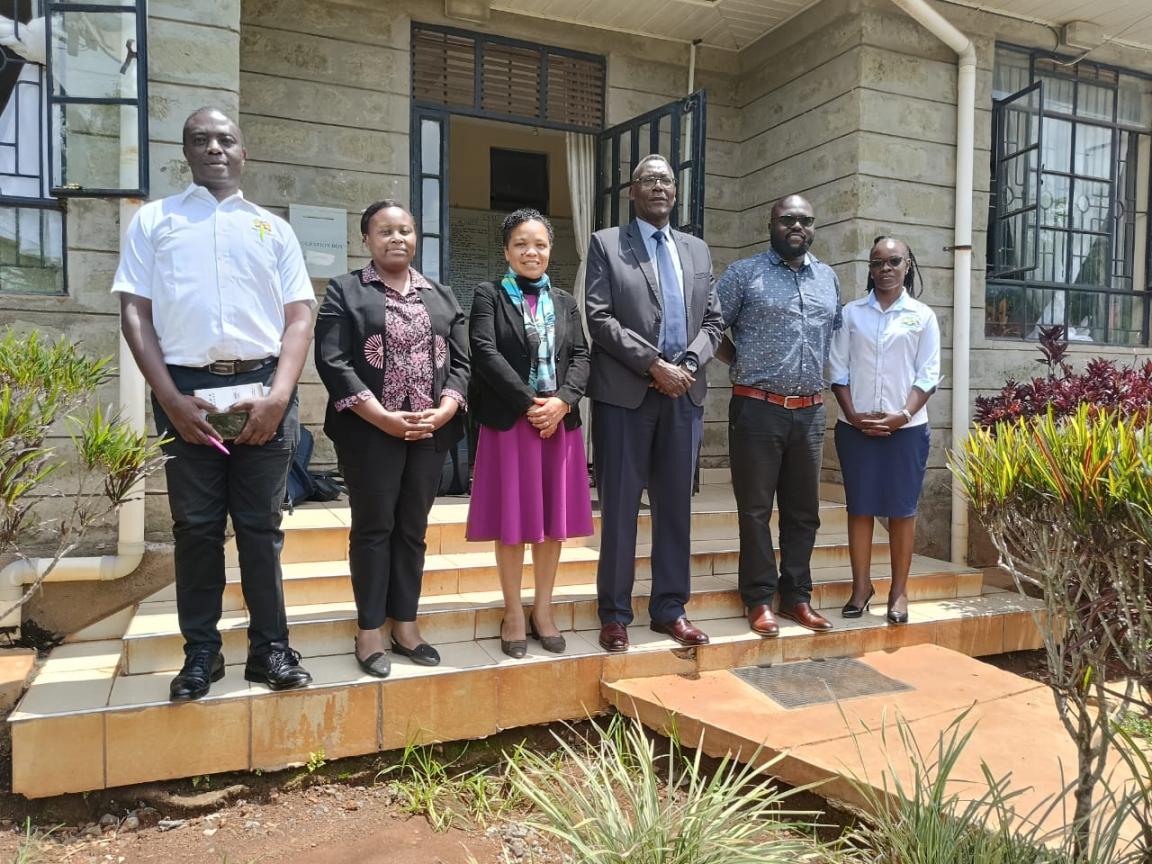
Digital Health Week 2023 is an opportunity for the digital health community to share their successes, challenges, and perspectives on the role of digital health in achieving Universal Health Coverage (UHC). Several of the week’s themes resonate with CHISU’s work, but the theme of governance stands out.
“Without good data governance in place, it’s impossible to optimize operational processes and data flows,” said Alimou Barry, CHISU Health Information Systems (HIS) Governance Lead. “Governance is necessary to generate good-quality data and make that data available and accessible for decision making.”
With that in mind, we asked CHISU team members: Why do you think governance is important when it comes to health data and digital health tools? And how does governance play a role in the work you do for CHISU?
Côte d’Ivoire
CHISU is supporting the Government of Côte d’Ivoire to improve data quality, management, and use. This will support management decisions made in the country, increase capacity to translate data into information, and increase confidence in the data generated through health information systems.
"In a context like Côte d’Ivoire, governance is important to better structure and coordinate health digitization—which is still in its early stages,” said Dr. Leontine Gnassou, CHISU Surveillance, Monitoring & Evaluation (SME) Technical Advisor.

Eastern and Southern Caribbean (ESC) region
CHISU is supporting governments in ESC to strengthen their COVID-19 response, improve supply chain management, and provide overall support to improve their health information systems. As part of these efforts, CHISU is supporting the establishment of a technical support facility (TSF) at the University of the West Indies. This TSF will serve as a repository of technical expertise and provide sound guidance for governance to be executed well at the country level, according to Nasolo Thompson, CHISU ESC/Latin America and the Caribbean (LAC) Regional Coordinator.
“If you don’t have good governance, then you don’t have the ability to be strategic,” said Thompson. “It’s the governance process that is going to steer the ship so that you have the time, you have the necessary people in place, you make the necessary consultations, and you engage the correct individuals and organizations so that your digital health response is situated in a way that it can grow without breaking.”
Indonesia
CHISU is working to improve outcomes for maternal and newborn health, tuberculosis, health financing, COVID-19, HIV, and the One Health response in the country. One of the ways the program is doing this is by strengthening Indonesia’s governance and HIS enabling environment.
As part of CHISU’s governance efforts in Indonesia, the program has been supporting the establishment of the country’s HIS Technical Working Group in collaboration with the Ministry of Health. This group provides a platform where stakeholders from various health sectors can come together and discuss health information systems; it also shapes the policies, standards, and practices that govern how data is collected, shared, and used.
Additionally, CHISU’s support in rolling out SATUSEHAT (Indonesia’s health information exchange and data analysis platform) has been underpinned by governance principles, according to Vickry Ghufron, CHISU Senior HIS Governance Specialist. This is because the team has ensured that data standards and interoperability mechanisms are guided by policies that protect patient privacy and data integrity.
“Governance plays a key role in the realm of health data and digital tools, acting as the backbone that ensures these resources are used effectively, ethically, and equitably,” Ghufron said. “In the context of health information systems, governance is not just about setting rules; it's about creating an environment where data is not only accessible, but also meaningful, secure, and used to its full potential to improve health outcomes.”

Kenya
In Kenya, CHISU is supporting the country’s government to strengthen its malaria elimination efforts in line with the Kenya Malaria Strategy (2019–2023). As part of these efforts, the program will support updates to the strategy and the country’s malaria policy. These strategic documents provide a framework for guiding stakeholders’ response to malaria control and elimination.
“Multi-sectoral engagement—with involvement of stakeholders from the national and subnational levels—will be critical during development of these documents,” said Hellen Gatakaa, CHISU Kenya Resident Advisor. “Coordination structures (such as the technical working groups) will be used to facilitate evidence-based review of the program's performance and to re-define the country's strategic direction. Overall, the governance structures act as platforms for information sharing—thus necessitating a need to strengthen their capacity for data-informed decision making.”
Serbia
CHISU is supporting Serbia’s government to strengthen health information system leadership and governance and improve the country’s data analytics and use. This includes technical support that CHISU provides to Serbia’s eHealth coordination body (created by the Serbian government in 2023). This coordination body helps to strengthen Serbia’s HIS leadership and governance by ensuring continuity in cooperation among health institutions and other stakeholders.
“In Serbia, governance is a significant part of CHISU’s work because Prime Minister Ana Brnabić provides support for digitization in all areas, including health care,” CHISU Serbia Resident Advisor Milan Kovacevic said. “Governance is important because even the best systems remain in the dark if they are not recognized by decision makers.”
Governance is key for improving data quality and use—and for achieving digital transformation moving forward
Improving data quality and use is a major focus of CHISU activities across the project. And as we learned from speaking with the CHISU team, governance is a critical piece of those data quality and use efforts.
“Governance is essential to establish a culture of accountability for data quality and evidence-based decision making,” said Madina Kouyate, CHISU Mali Resident Advisor. “And for governance to be deeply rooted in a country’s health information system, it requires broad participation of key players—involving both data producers and decision makers.”
Anya Cushnie, CHISU Technical Lead for Data Use and Analysis, noted that the project recognizes that governance is a cross-cutting factor affecting all domains of health information systems and digital transformation—including system development and data use.
“Governance is the starting point and a key pillar of digital health, but it’s often neglected,” she said. “Without critical governance structures, health information systems fail and digital health is hindered. CHISU supports countries to ensure governance is a facilitating factor in digital health, and to strengthen governments in leading their digital transformation process.”